Welcome to FoodWorks! An innovative summer leadership program combining academic and experiential learning in food systems. To apply for the 2015 program visit: http://www.middlebury.edu/foodworks/.
Welcome!


Welcome to FoodWorks! An innovative summer leadership program combining academic and experiential learning in food systems. To apply for the 2015 program visit: http://www.middlebury.edu/foodworks/.
Middlebury FoodWorks Positions Available for Summer 2014
Apply Now through MOJO
Live and learn together about food and food systems while doing cool and meaningful work in your area of interest!
Paid positions with 21 businesses and organizations in Louisville, KY and Vermont. Work in a facet of the food system: microenterprise and economic development; education;health and nutrition; food production, processing, distribution, and marketing; food access and security; food equity and social justice; sustainable agriculture; research and policy; and more.
Middlebury FoodWorks is a cohort internship program for students interested in food studies. Each student works four days a week in a job focused on a different aspect of the food system. On the fifth day, students participate together in activities to learn more about the many topics related to food and food systems.
Program Dates: Sunday, June 1 – Friday, August 1, 2014.
Housing is provided.
A downloadable document summarizing each of the positions will be available here soon.
Deadline February 23
This week, students are posting representations of their local food challenge projects. Back in July, they were tasked with deepening their understanding of a local food issue of their choosing. Each student is presenting their findings in a five minute talk to their peers, that will or has been recorded and posted on the blog as their final installment.
Well done, FoodWorks students!
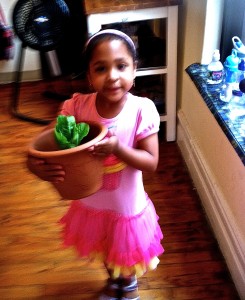 Peters, Franzen and Hoyler, all teachers, talked about their motivations for getting students engaged with food in the classroom, and their methods for doing so. Here are two questions that should allow you to apply what you’ve learned through foodworks to your own passions and future plans:
Peters, Franzen and Hoyler, all teachers, talked about their motivations for getting students engaged with food in the classroom, and their methods for doing so. Here are two questions that should allow you to apply what you’ve learned through foodworks to your own passions and future plans:
1) Do you see yourself teaching in the future?
2) If so, in what context? Imagine how you could incorporate nutrition and culinary education into your curriculum. Connect this to your summer internship if you can.
If not, just consider this more theoretically: how could a teacher cater to kids with different learning styles (ie auditory, kinesthetic, and visual learners…) or backgrounds (no cooking experience vs. lots of cooking with family, preference for fast food vs. preference for home-cooked ethnic foods) or even language barriers—without isolating different groups? Or is that impossible?
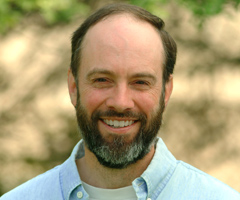
 Is it possible to redesign our food systems in the U.S./Mexico borderlands so that they enhance the “caring capacity” of our lands and its communities? Can we increase that capacity so that we will be less apt to impoverish both the health of the land and the health of its multi-cultural communities than they currently do?” From: http://garynabhan.com/i/archives/143
Is it possible to redesign our food systems in the U.S./Mexico borderlands so that they enhance the “caring capacity” of our lands and its communities? Can we increase that capacity so that we will be less apt to impoverish both the health of the land and the health of its multi-cultural communities than they currently do?” From: http://garynabhan.com/i/archives/143
Philip Ackerman-Leist poses this week’s prompt based on his FoodWorks Talk and in response to the above quote he featured in his talk:
As we look to finding leverage points for building community-based food systems, there seem to be three categories of solutions: entrepreneurial efforts, policy initiatives, and grassroots/NGO approaches. From your experiences thus far in VT/KY, describe an effort you are seeing in one of these three categories and analyze its (potential for) success and its challenges. Remember that analyzing failed efforts can be as illustrative as describing successful projects.
By the way: Some of the resources he referred to are now listed on the “What We’re Reading” page (under this week) in the Readings and Resources section: https://sites.middlebury.edu/foodworks/what-were-reading/.
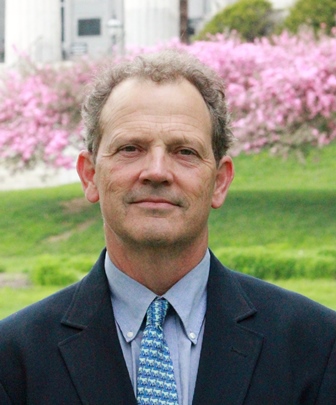
 For this week’s blog prompt, Vermont Secretary of Agriculture Chuck Ross poses two critical questions about building an inclusive and resilient food system:
For this week’s blog prompt, Vermont Secretary of Agriculture Chuck Ross poses two critical questions about building an inclusive and resilient food system:
How can we evolve our local food system to expand the socio-economic range of our population that can effectively participate?
How do we overcome the assume contraction between supporting local food systems and our food access concerns?

The “wedge.”
The “level.”
The “fulcrum.”
Ivor said that being a consumer was a passive fallacy. In reality, he said, we are co-producers in the items we buy, use, eat, wear, wear-out, throw-away or recycle. For the “wedge” to engage the market, it needs more than just the idea or the champion; it needs co-producers supporting the endeavor with money, confidence, and encouragement. I saw this repeatedly as we visited the Root Cellar and Grasshoppers down here in Louisville, and I am sure the Middlebury alum who started his own farm was supported by others who enjoyed eating his produce and believed in what the farm stood for. McDonalds doesn’t need a wedge. It is one of the 16 ton Acme weights that seems to be immovable. It also seems that many are helping solidify the its position. These behemoths (ie. Monsanto, Cargill, Yum!, etc.) cover the economic landscape in regards to food and agriculture. Is it our job to move these obstacles? Do we work around them? Or burrow into them?
What are the effective “wedges” that you have found in your community? How do you identify them as something positive for the community and local economy? How can you become a co-producer beyond just buying their products?
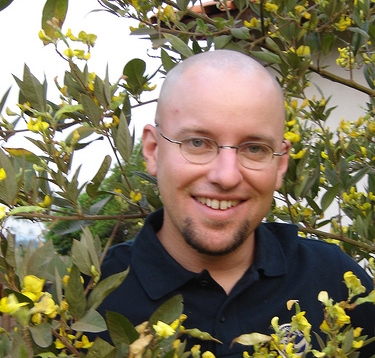
Here is this week’s blog prompt:
Though the concept of sustainability can seem vague and confusing, it is not something we should avoid. In fact, taking the concept’s dynamism, contested nature, and context-specificity seriously is exactly what is demanded of us if we want to achieve a future not built on our past mistakes. We simply have no choice but to wrestle with sustainability…as individuals, institutions, and societies. It is our duty to seek that illusive balance and to continually learn from our mistakes as we pursue solutions which truly balance environmental, social and economic responsibility. Anything less is simply unacceptable and ultimately not going to work (i.e. UN-sustainable).
As messy as the concept of sustainability is, there are helpful guidelines out there, as provided by Ackerman-Leist in adopting the “soil to soil” perspective.
None of us are perfect and few come close to living sustainable lifestyle in regards to transportation, housing, entertainment, and food. Often times even our attempts at sustainability can have negative consequences in creating airs of elitism, causing unintended social justice issues, or creating unbalanced market realities.
In this post, I offer two challenges:
1) Using the series of calculators provided at this link, analyze two of your daily behaviors. Comment on what you found in regards to carbon, nitrogen, slavery, etc. and whether the results causes you to make a change in your own life.
2) Ackerman-Leist promoted the return of “biosolids” back into the system of food production. To some this is a radical and preposterous claim. What is the social, legal and cultural process that must take place for revolutionary sustainable behaviors to not only be accepted but adopted?
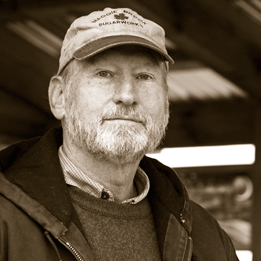
In my talk last weekend I read the following sentence from Rebuilding the Foodshed: “Where matters immensely in the food system world, but so do how, why, by whom, and for whom” (p. 22). In thinking more about that idea, however, I also find myself revisiting a couple of sentences from further on in the paragraph. Philip elaborates on his concerns in asking, “Who is doing the real work in getting the food from farm gate to dinner plate? And is it ultimately food for all or just a select few?”
Several comments in our teleconference touched on these questions, and I wonder if they might also be useful in focusing discussion on the blog this week. Have you experienced examples of the disparity Philip implies between those who produce high-quality local food and those who are privileged to enjoy it? Do you have some thoughts about how the realities of by whom and for whom might be more fairly reconciled?
It was truly a pleasure to meet you all, and I look forward eagerly to seeing where your summer’s adventures will lead you.